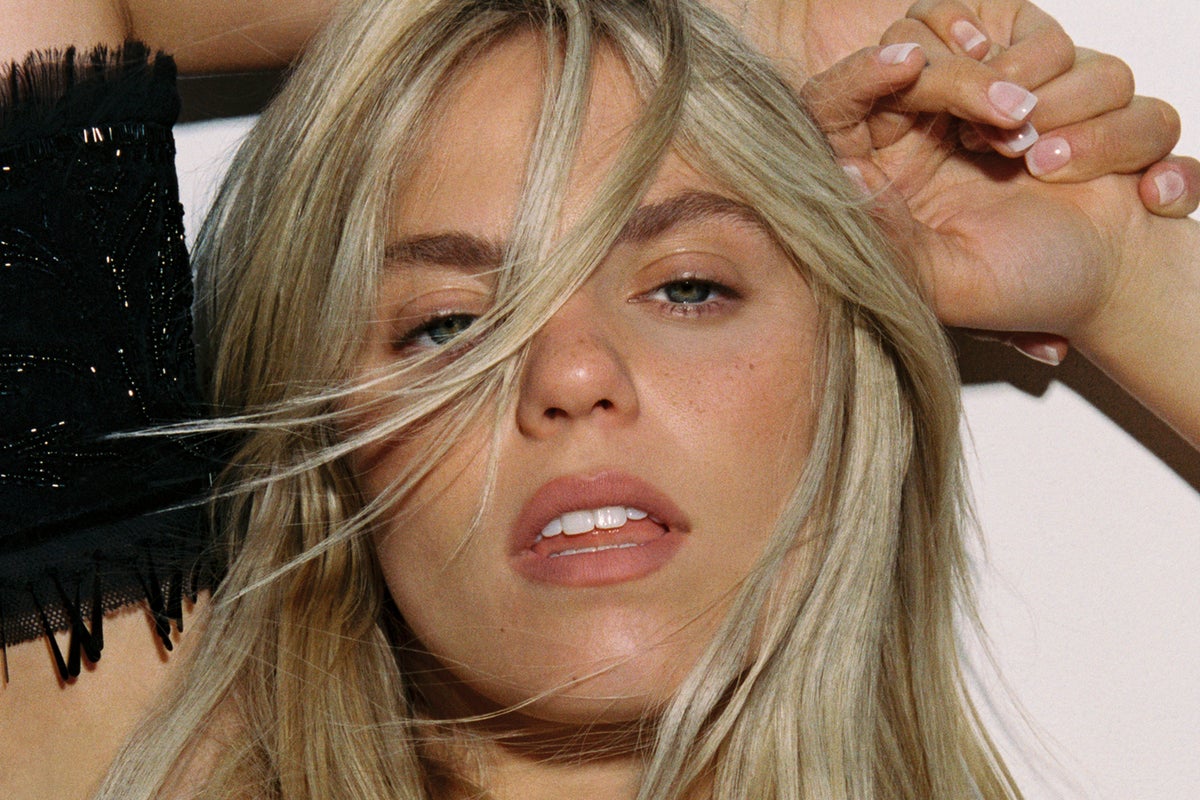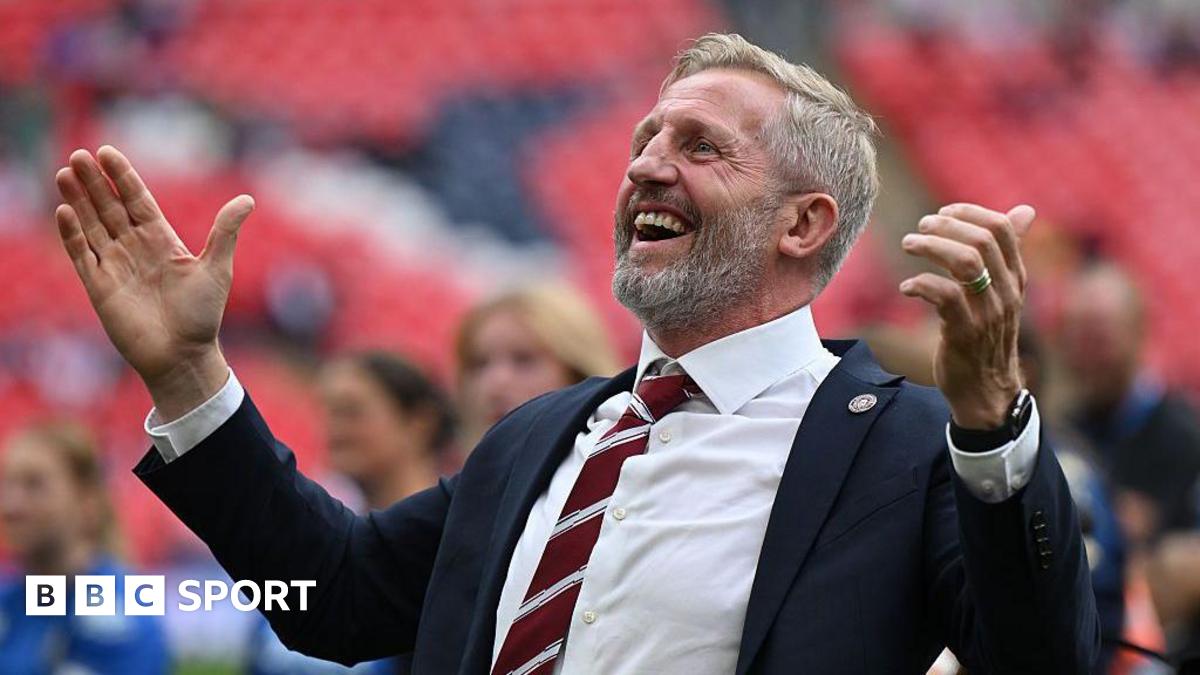The American pop-rock star Reneé Rapp recently earned a UK No 1 with her spunky, defiant second album, Bite Me. It was an achievement that pleased her, even if it didn’t quite thrill her. Her old team used to be “very American, very grandiose” in that way, she says, doing a lightly hysterical, nasal impression of them from a chair in Universal’s London HQ: “‘You’ve worked so hard and this is everything and oh my God and oh my God and if your younger self could see…’” The 25-year-old slaps her thighs as she replies back to them: “We gotta pack it up. I’m not curing cancer.” It’s better to be neutral about achievements anyway, she’s realised. “Those [successes] will never feel as high as making a record and I used to think that they would and they do not, and that’s OK.” To conclude: “I was… pleased with it being No 1.”
It’s a measured approach to winning from such a resolute character, a vivacious musician whose music is equal parts big belting vocals, jazz hands energy and messy gay relationship themes. One whose star began to rise years before her 2023 debut album with a role as Regina George, ultimate sovereign of the school cafeteria, in Mean Girls on Broadway, a part that earned Rapp a Queen Bee reputation that often precedes her. Between 2021 and 2024, Rapp also starred in HBO Max’s queer teen drama The Sex Lives of College Girls, a show I admit I haven’t seen, and I suspect she won’t mind, given the rumours that for her it was more miserable to make than it ever could be to watch. “Girl, neither have I,” she says flatly. “There’s no need for you to watch it. Let me f***ing tell you right now. You are fine. You are not missing anything.”
Maybe that was obvious from “Leave Me Alone”, the opening track and lead single on Bite Me: “Took my sex life with me now the show ain’t f***in’!” she quips over equally bratty production.
Though she started as a classic theatre girl triple threat, a pop career is her total focus now. Watching me through Miu Miu frameless glasses, she radiates a curated ease: feline face, pillowy lips, that all-natural tan that reads Australian (though she’s from North Carolina). Even her teeth and eyes seem edited, luminescently white. I expected her to be extremely high energy considering the type of animated pop star she is: Reneé Rapp was built for short-form content, for talk shows, a niche internet celeb story. Over the past month or so, there has been “Reneé Rapp is considering buying one of Queen Victoria’s former homes”; “Benson Boone and Reneé Rapp beefing over backflips is the unserious drama I needed today”; “Reneé Rapp called white gays ‘insufferable’, including herself”; “Reneé Rapp opens up about cheating on her ex on the Call Her Daddy podcast” and more, much more.
But she’s not high energy today. Rapp knows she’s seen as a zany in-your-face person, but that’s because of the meme-friendly content formats she’s placed into, she says: “I come across that way because I actually will just play so far into whatever vibe that I’m in.”
The possibility that she has become an internet persona rather than a pop star has occurred to her. She has already done a whole press tour for Bite Me and I read and watched it all, including a 50-minute Zane Lowe interview about her new album, and left knowing nothing about the album. So, what’s the deal? Has she become too fun to talk to? “I think journalism has changed so much in that way – I’m sure I’m preaching to the choir – everything is on the internet and everything is for the internet now,” she says, which in a way can make things more playful. “I also think in a way it’s a bit stifling.” How her personality is perceived was something she never thought about until recently. “Now it’s become, ‘Oh, she’s unfiltered or controversial or is gonna say something that people will engage with online or she’s a b**** or ungrateful.’ I don’t know why. I think that’s something that’s worked for a couple of news outlets and now that’s what everybody’s drawn to… in America. I don’t feel that way as much here.”
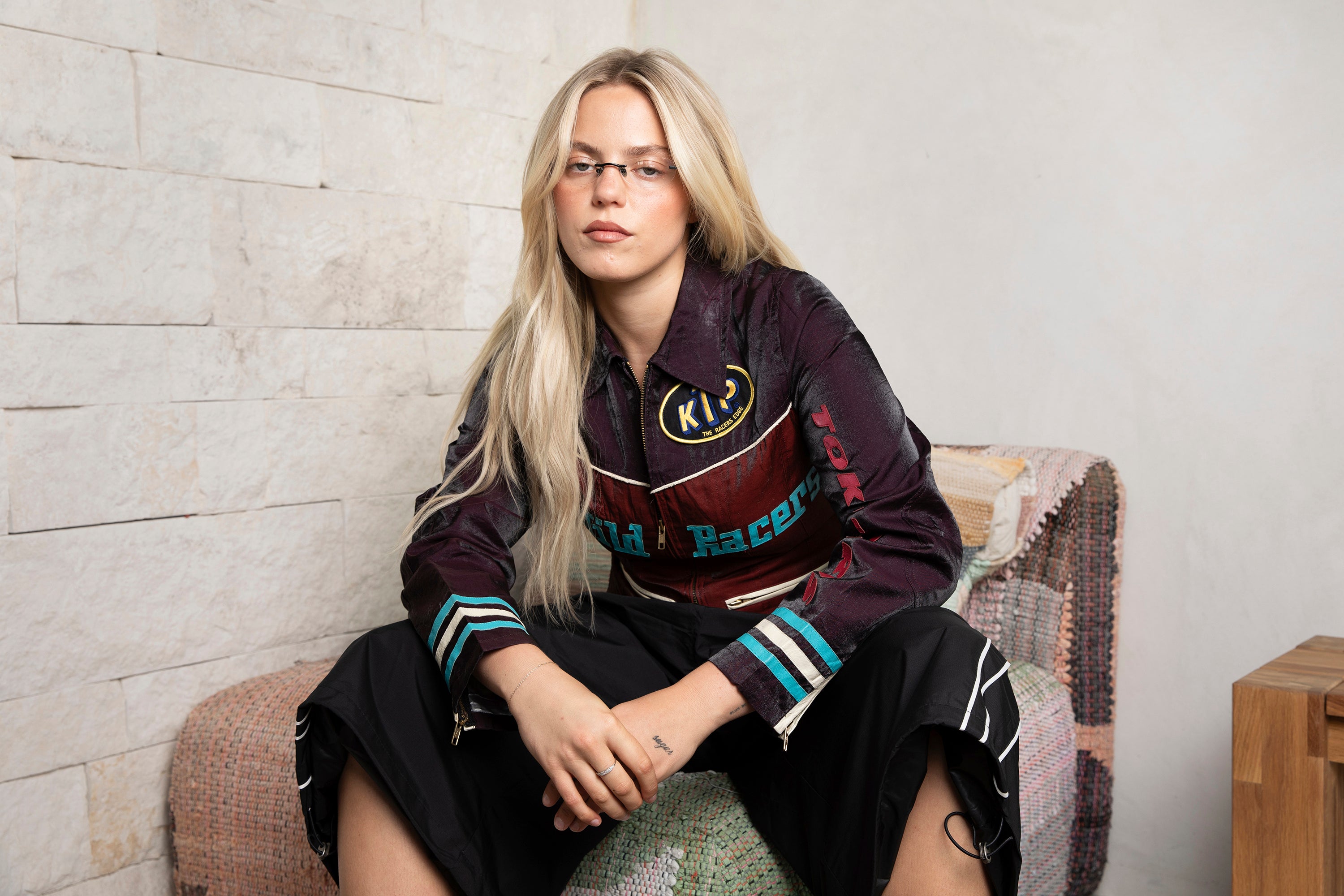
She noticed that participating with UK radio hosts felt more like a normal exchange to promote her work, rather than an opportunity to boost someone else’s profile: “He doesn’t want something out of the conversation that is for him,” she says of one recent such radio host on this current UK trip. “I’ve gotten pretty good at being able to tell that in interviews.”
This press trend has made bigger jesters of women than men, she thinks: “It is interesting that [with] every female artist that I can think about right now, the conversation is rarely about their music, it’s always something baity for the internet. And with me it especially has been.”
What has been lost, perhaps, in the clips of Rapp as jester, is her single-minded focus, which no doubt came from a childhood being raised by a medical salesman dad and an accountant mother, who now acts as her business manager. She was so much of a musical theatre prodigy that she won “Best Performance by an Actress” at the 10th annual Jimmy Awards in NYC, a national awards show for high school musical theatre students. The actor who presented Rapp with the award, Laura Benanti, did so with the message, “I will never be as confident as that 18-year-old.”
Enjoy unlimited access to 100 million ad-free songs and podcasts with Amazon Music
Sign up now for a 30-day free trial. Terms apply.
Try for free
ADVERTISEMENT. If you sign up to this service we will earn commission. This revenue helps to fund journalism across The Independent.
Enjoy unlimited access to 100 million ad-free songs and podcasts with Amazon Music
Sign up now for a 30-day free trial. Terms apply.
Try for free
ADVERTISEMENT. If you sign up to this service we will earn commission. This revenue helps to fund journalism across The Independent.
While that same 18-year-old Rapp was auditioning for the Mean Girls musical, she was already fervently pursuing a pop career in New York. When she got a personal call-back for the national tour of Mean Girls by creator Tina Fey, Rapp knew being in the national tour didn’t match up to her vaulting ambition, but thought, “Yeah, I’m gonna go sing my f***ing ass off in front of Tina. I’m gonna meet this b****. I respect her. She’s one of the greatest people in comedy.” She was offered the role of Regina George but turned it down. Fey was incredulous, Rapp remembers: “She was like, ‘What the f***? What is wrong with you? You’re insane. We’re offering you the lead on a national tour of a show that is one of the biggest IPs in the world.’” Rapp’s logic was clear: “I want to be a pop star. So I’m not gonna go around the f***ing US for a year. I don’t want to perform in Iowa. Who’s gonna help me with my music career in Iowa? Nobody.”
Fey and producer Lorne Michaels, the creator of Saturday Night Live, then offered her the Broadway show so she could remain in New York and she said she’d consider it – with a caveat. That they’d market Rapp as a pop star and use the musical as a launch pad for her music career. “I think it was probably jarring because it’s like, what the f*** do you have going for you that you could say no? The truth is nothing, except the confidence and assuredness in myself that I was going to f***ing do what I was going to do,” Rapp remembers. Baffling or endearing, her bullishness worked. Fey and Michaels have continued to be two of her “biggest cheerleaders”.
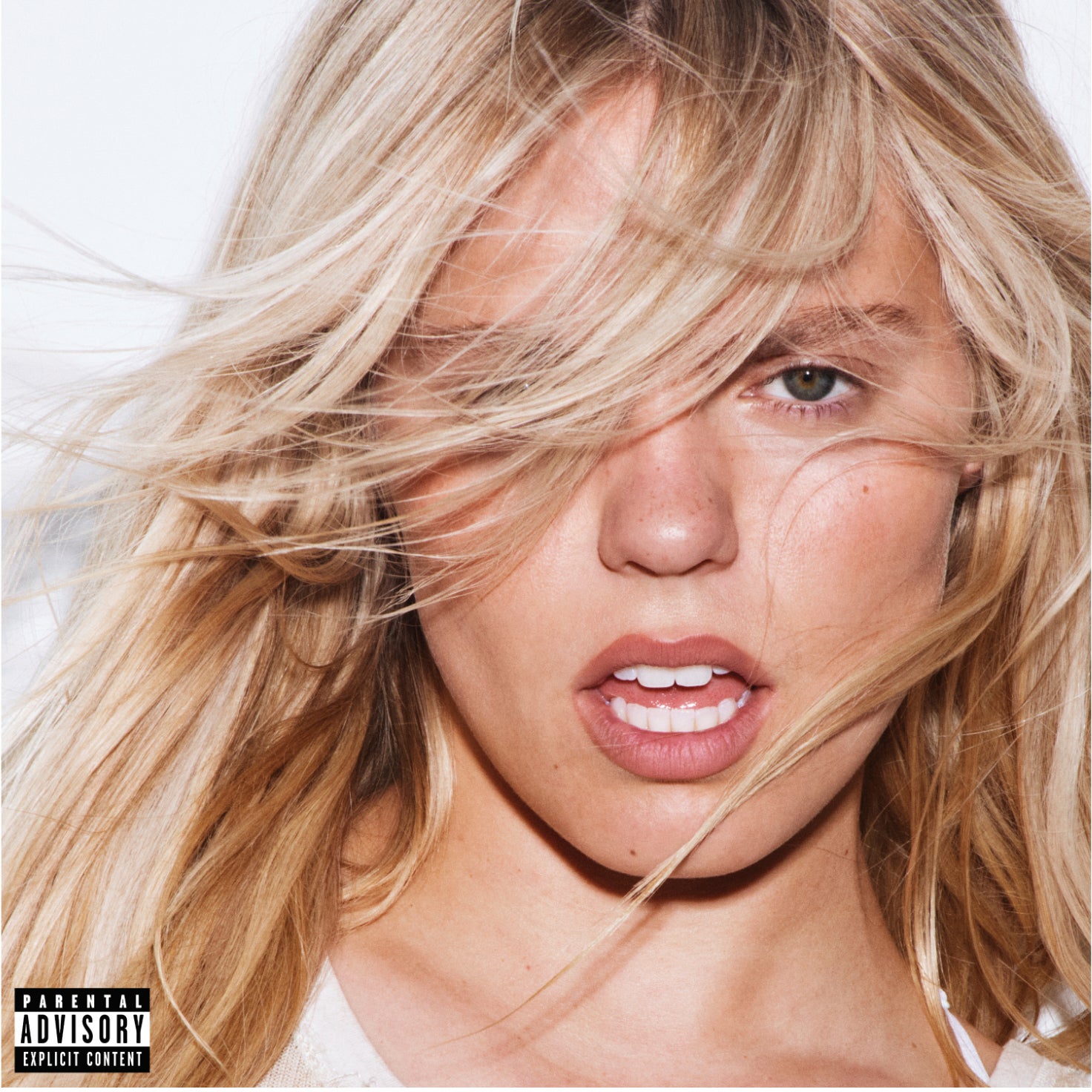
“The militant nature of doing the show on Broadway prepared me to do anything,” she adds. Rapp has spoken in the past about having an eating disorder and mood disorder. Many of her shows have been performed in the face of those trials, including every festival that she did last year, she says: “I was wickedly depressed and severely unhappy and physically sick – and I still did every show.”
I was introduced to Rapp in early 2023 for her first London show at Kentish Town Forum. The music wasn’t too memorable but she was: enormously charismatic, big belting numbers and relentless gags between songs. As far as the largely queer female audience was concerned, she was Harry Styles. She perks up at me remembering this, pleasantly surprised that I was there for that milestone moment: “‘New pop girl’ is the scariest phrase to hear in the whole wide world, I’m sure, for a journalist,” she says, joking about the way she’d inevitably been billed by her team. “You’re probably just like, ‘Oh, for f***’s sake, another one. What is this gonna be?’” I tell her that I recall being unsure of where her sound would land, still in its amorphous initial stages of sonics and style. “I felt that way too,” she admits. “It could have gone so many different ways and of course there’s always room for it to.”
But she found her distinctive voice on Bite Me: caustic, arrogant, delighted, like Regina George turned up to 11. Rapp had been through a turbulent few years in her early adulthood: navigating being a proper public figure, “staying in relationships that didn’t serve me”, legal disputes, NDAs, partying and blacking out, trying to prove herself as a pop contender. “I had had it up to here,” she says, jutting her hand under her neck. “‘I’m sick of y’all, I’m sick of y’all. And I’m sick of my f***ing self.’ I felt like I needed to strip naked, get all of my clothes off and run. And I had no idea where I was going but I knew that I was not going back.” That energy, she felt, was contained by the phrase “Bite Me”.
“I wanted the album to be everything that fit that title,” she continues. “I wanted it to be everything thematically that was biting, bitchy, get the f*** out of my face.” She throws a spider hand up in my direction dramatically. “I didn’t know sonically what it was going to be but I knew exactly what the attitude was.”
The song to shape the record was “Leave Me Alone”, which came a difficult six months into writing. Rapp’s team kept calling to ask when the next song was coming out. “I was like, ‘Get the f*** out of my face. I’m trying to have fun with my life, I’m trying to go out with my friends, I’m in a new relationship and madly in love with my partner, I bought a f***ing house. Everyone get away from me, let me have f***ing fun.” One of her songwriters, Steph Jones (a co-writer on Sabrina Carpenter’s “Espresso”), told her to just put that message into a ballsy track. “I was worried about what people would say. And she was like, ‘Right but that’s how you talk as a person so why do you care?’”
Was she worried about what her team would think, though, on the harsh receiving end of this song? “No, I don’t give a f*** about that. Them, I don’t care about.” Because she had just made a new track, exactly what they’d wanted? “Once my personality started to come through the music, everybody was in. And then I was in too,” she says resolutely. And since she was listening to a lot of pop-rock girl duo The Veronicas, the rest of the music either sounds like Demi Lovato-era Disney rock about being a sadistic lesbian trying to get back at her ex (“You’d Like That Wouldn’t You”) or euphoric pop songs about being well-behaved before she fell in lust with someone (“Good Girl”).
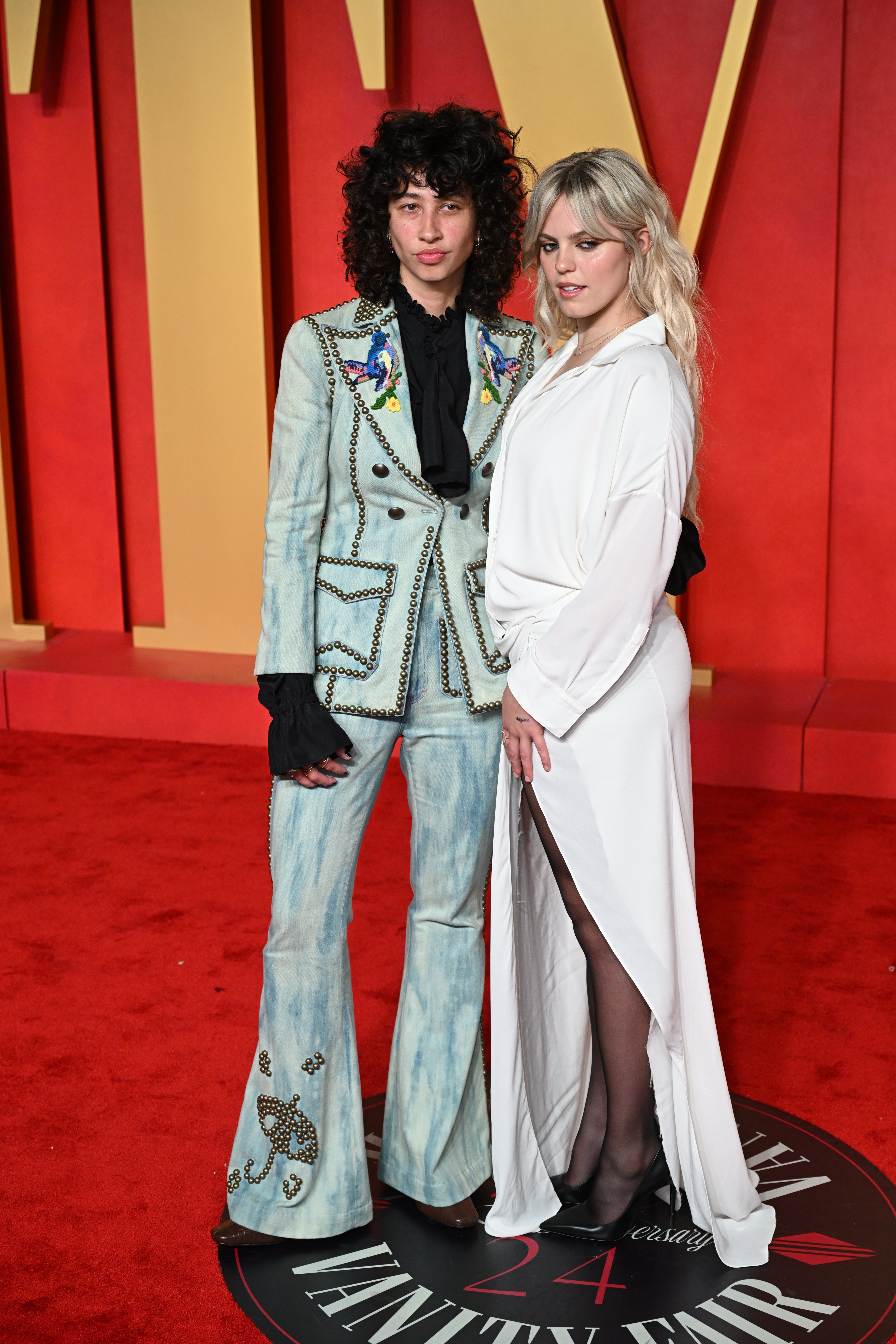
The album is a little black book of lovers and exes, all unnamed. Did any of these people get in angrily touch with her? The songs cleverly blend details from different relationships, she says. But still: “I can imagine that people would assume that my songs are fully about them. I’m like, ‘Girl, this isn’t about you. This is about my album rollout. Let’s be so clear. With all the love in the world, this s*** is not about you.’” With hand claps, with a light eye roll.
A passing thought of her girlfriend, the musician Towa Bird, brings a smile to Rapp’s face. “I would imagine dating me is kind of hard,” she says, adding that dating a songwriter is hard full-stop. But wait, she realises, rising up on her chair in protest, she is also dating a songwriter. It is hard! “You get songs written about you and all the intimate details of your life!”
It’s a full-blown cabaret to have a romantic relationship safely in the public eye, Rapp admits. “There’s a skill to making people think that you’re giving away a lot when in reality you’re giving away the smallest bit. People think they know a lot about my relationship, but in reality, myself and my girlfriend are very private people and I’m really good at making it seem like we’re not because I will protect her in every way that I can,” she says. That’s when I realise she’s talking about herself too: for the past hour, Rapp’s been part magician, part showgirl, making a wonderful spectacle out of giving little away. She’s a bona fide professional. Of course: the show must go on.

